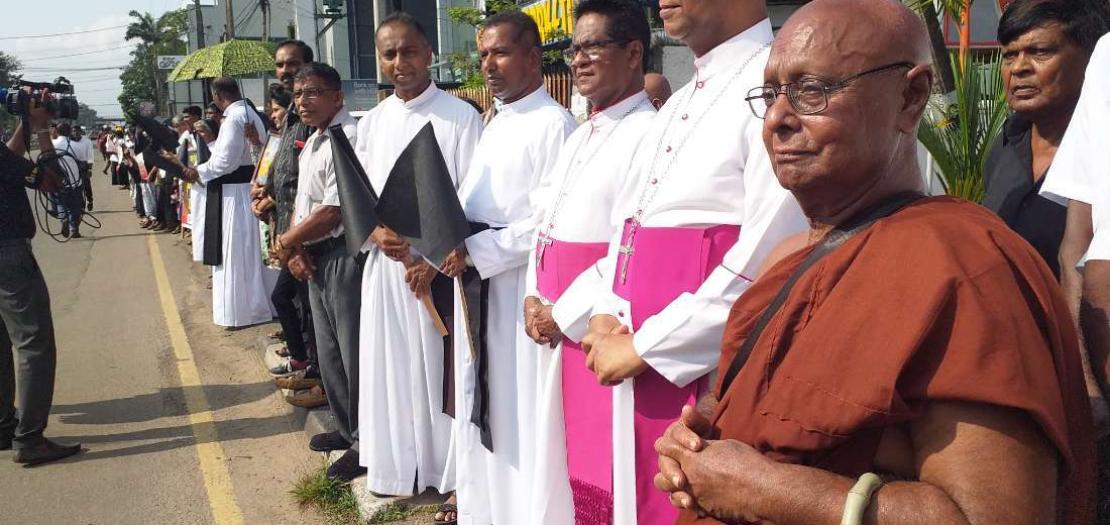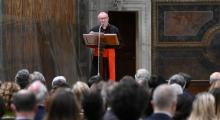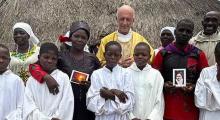Issued by the Catholic Center for Studies and Media - Jordan. Editor-in-chief Fr. Rif'at Bader - موقع أبونا abouna.org

The Catholic Bishops’ Conference of Sri Lanka has criticized President Ranil Wickremesinghe for suggesting a rift in the Catholic Church leadership over an international probe into the 2019 Easter Sunday bombings that claimed 269 lives.
During an interview with German broadcaster Deutsche Welle on October 3, Wickremesinghe ruled out an international probe into the simultaneous bombings that ripped through two Catholic churches and three luxury hotels, also killing 45 foreigners from 14 countries and hurting more than 500 people.
Wickremesinghe said he was “only dealing with the bishops' conference" and not with Cardinal Malcolm Ranjith of Colombo, who has been demanding an international probe.
Conference president Bishop Harold Anthony Perera of Kurunegala has said that the stand of Cardinal Ranjith and the bishops on the issue is the same.
All decisions are collectively made with the approval of all bishops, Bishop Perera said, according to an article published by Gnanartha Pradeepa, a Sinhala language Catholic weekly in its Ocober 8 edition.
“The recommendations made by the two commissions and a parliamentary special committee have not been implemented so far,” the prelate observed.
It is better investigations “should be conducted under the supervision of an independent international investigation team,” he added.
Currently, the bombings are attributed to the local Islamist extremist group National Thowheed Jama'ath, linked to the Islamic State.
Ranjith has been vocal in criticizing the government over the tardy progress in the probe.
The 75-year-old cardinal, who earlier headed the bishops’ conference, has been insisting on an international probe.
Ranjit reiterated the demand after a UK-based broadcaster on Sept. 5 claimed that the country's worst-ever terror attack was engineered to create insecurity in the country and to influence the result of the 2019 election in favor of Gotabaya Rajapaksa.
Rajapaksa became president following an election that year but fled the country over massive protests in July this year.
After the allegations by broadcaster Channel 4, Nada al-Nashif, deputy high commissioner for human rights at the United Nations, called for an impartial international inquiry.
In July this year, four days after Wickremesinghe became acting president he favored an international probe.
“If everyone is willing, I would like to get the help of the United Kingdom and their police authorities,” he said.
During a meeting on September 11 with Samantha Power, administrator of the United States Agency for International Development (USAID), he reiterated his stand on seeking international assistance to nab the perpetrators.






